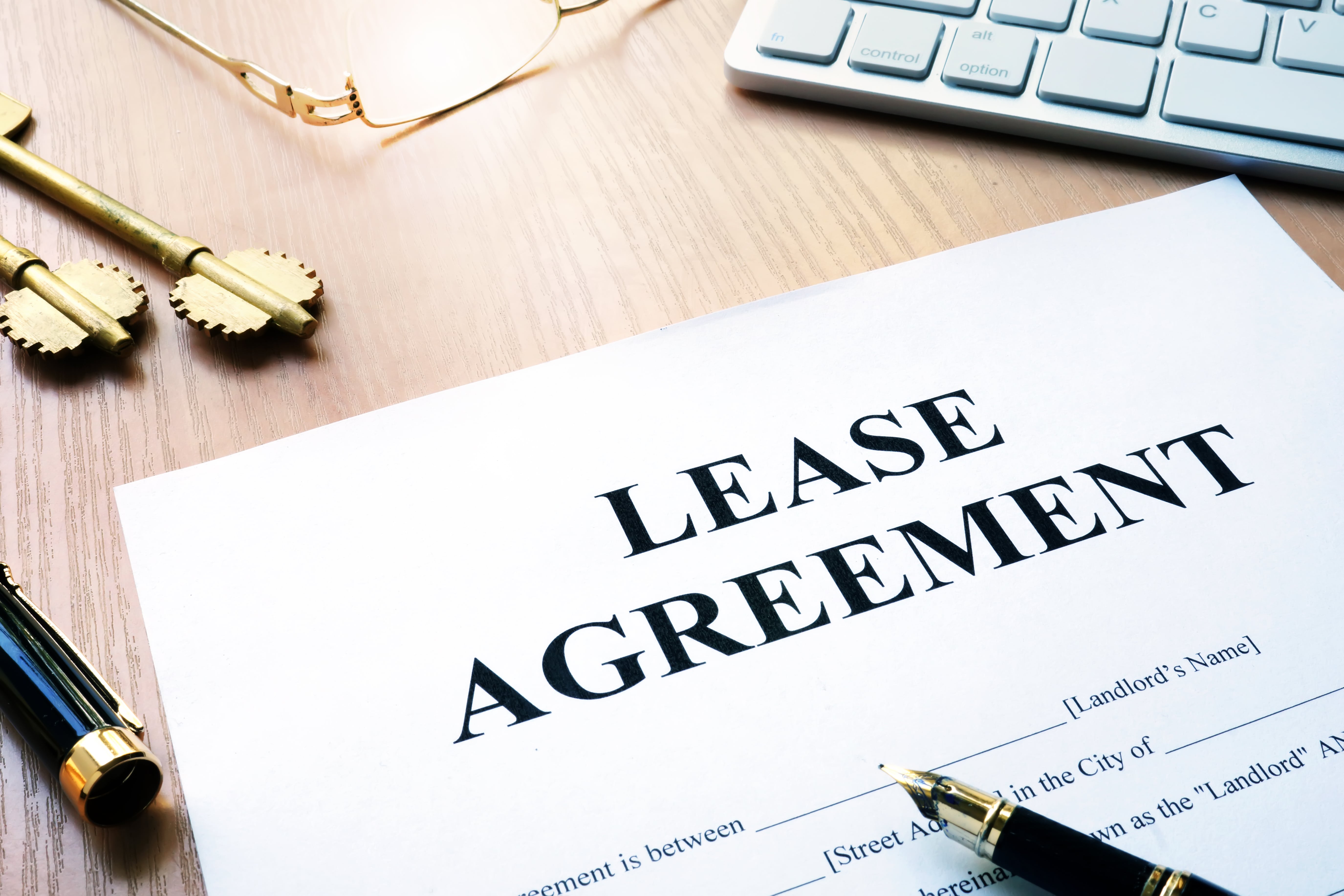Last Updated: August 28, 2025
Converting Your Vacation Rental to a Long Term Rental Strategy

In today’s property management landscape, adaptability is everything. If you are thinking about changing your rental strategy for your investment property from a short term rental model, you are not alone.
More investors are making this change because of the subpar occupancy rates. Some with over 80% vacancy. They want to secure steady income, lower management tasks and operating cost, and deal with less stricter short-term rental rules.
This guide breaks it down for you in simple terms—from the benefits and challenges to legal tips and best practices. Let’s dive in to help you make informed decisions for your investment.
Short-Term vs. Long-Term Rental Properties: What’s the Difference?

Short-Term Rentals:
- Rented by the night, week or up to 30 days
- Great vacation home for tourists or business travelers
- Higher potential earnings per month
- Frequent turnover and hands-on management
- Regulated heavily in many cities
Long-Term Rentals:
- Leased for 6+ months or longer
- Lower tenant turnover
- Steady income month after month
- Less hands-on management
- Fewer regulatory hurdles
Many people view short-term rentals, like Airbnb, as extremely profitable. This is especially true in vacation spots or busy cities with many tourists. However, they also require substantial involvement from the owner.
Extended leases provide greater reassurance. This is especially true for owners who want steady income and fewer daily tasks.
Pros & Cons of Short-Term Rentals
Pros:
- More income per night
- Flexibility for personal use
- Adjust pricing seasonally
Cons:
- High turnover = more work
- Costly cleanings and maintenance
- Unpredictable income
- Heavily regulated in many markets
Cities across the country are cracking down on short-term rentals. From license requirements to nightly minimums and neighborhood bans, these restrictions can create uncertainty for Airbnb hosts. The frequent turnover also requires more attention to guest communication, key exchange, and deep cleaning.
The income prospects are promising, yet there are fallbacks to this strategy. These issues can become significant for someone who owns many properties or has other responsibilities.
Why Switch to Long-Term?

- Consistent rental income that makes budgeting easier
- Fewer management tasks and tenant turnover
- Better tenant relationships and community stability
- Significantly less property maintenance
- Simpler legal compliance
- Significant impact on tax deductions
- Lower risk of violations from changing short-term laws
Long-term rentals offer the benefit of reduced risk and increased financial stability. With predictable monthly rent, you can plan for expenses like property taxes, insurance, and future improvements. Building long-term relationships with tenants also creates a more positive property environment, reducing damage and conflict.
Many Airbnb owners find that after several years, the constant turnover and cleaning become exhausting. Changing your short-term rental to a long-term lease can ease these problems. It can still give you good returns, especially in growing rental markets.
Legal Considerations Before Switching Rental Strategies

Before switching, check:
- Zoning laws: Are long-term rentals permitted in your area?
- Lease regulations: What disclosures does your state require?
- Tenant protections: Are there rent caps, notice periods, or eviction restrictions?
- Permits or licenses: Will you need to update your business registration?
- Insurance: Does your policy cover long-term tenant risks?
Legal compliance is essential. A poorly structured lease or missing disclosure could lead to disputes or costly legal battles. Make sure to consult a local property attorney or experienced property manager who understands your area’s laws.
Setting the Right Rent Price
When determining how much to charge its more than the amount of your mortgage payment.
- Research comparable properties nearby
- Adjust for amenities like furnished rooms, pools, or recent renovations
- Monitor local trends including vacancy rates and seasonal demand
- Review costs like taxes, insurance, and HOA dues
Use online tools like Rentometer or Zillow Rent Estimates as a starting point. If you use a property management company, they can provide you with a detailed rental market assessment. This will help you set a competitive price and attract more potential tenants.
Financial Factors to Consider

- The tax structure may treat long-term rental income differently than short-term rental property earnings.
- Deductions: You can often write off property repairs, depreciation, and management expenses.
- Insurance: Landlord policies are different than vacation rental coverage.
- ROI: Consider not just rental income but your time, risk, and property value appreciation.
For example, while your Airbnb may earn $3,000 in peak season, you may only make $1,500 in the off-season. With a long-term lease at $2,000 a month, you might earn less on paper. However, you can avoid vacancies, save on cleaning, and lower the risk of breaking regulations.
Remember that having a steady rental history can increase your property's value. It also makes it more appealing to lenders when refinancing or growing your investment portfolio.
Tenant Screening & Lease Setup

A successful long-term rental begins with great tenants. Start with:
- A rental application that collects employment and rental history
- Background checks including credit, eviction, and criminal history
- Verification of income (at least 2.5x–3x the monthly rent)
- References from past landlords
Once approved, draft a lease that includes:
- Rent amount and due date
- Security deposit terms
- Pet policies
- Maintenance responsibilities
- Entry notice requirements
- Lease term and renewal procedures
A well-written rental agreement prevents issues and protects both parties. Consider having it reviewed by an attorney or better yet hire a property manager.
Landlord Tips When Converting Rental Strategy
Here are some tips to consider when converting your rental to long term:
Property Updates for Long-Term Tenants
In contrast to Airbnb visitors, long-term renters seek a place to call home. You may need to:
- Remove furniture if switching from furnished
- Deep clean and repaint
- Repair or replace worn appliances
- Improve storage or add closets
- Ensure all utilities are functional and efficient
If you have previously furnished your Airbnb, consider selling or storing those items. Most long-term renters come with their own furnishings and prefer a blank canvas.
Additionally, adding contemporary amenities such as a washer/dryer, dishwasher, or smart thermostat can increase rent. This can attract good tenants.
Marketing Your Long-Term Rental

Get your listing seen by the right renters:
- List on Zillow, Trulia, HotPads, Facebook Marketplace, and Apartments.com
- Highlight proximity to schools, shopping, transit, or major employers
- Use high-quality, updated photos and a floor plan
- Mention any included utilities or perks (like lawn care or pest control)
Write a compelling description that emphasizes stability and comfort. Instead of marketing for vacation fun, highlight words like "spacious," "updated," "quiet neighborhood," and "ideal for families or professionals."
Don’t forget to respond promptly to inquiries and offer flexible showing times. First impressions matter.
Communication is Key
Keep tenants happy with:
- Clear, friendly communication
- A designated contact for maintenance
- Digital rent payment options
- Periodic property checks (with proper notice)
Strong landlord-tenant communication prevents small issues from becoming significant problems. Tenants are more likely to renew and respect the property when they feel heard and supported.
Leverage Property Management Services
If you are looking for more consistent income and want to switch from short-term to long-term rentals. Consider hiring a property management company like Allegiant Management Group is one option that can assist you. They make this transition easy.
What we can handle for you:
- Marketing to prospective tenants
- Tenant screening
- Lease agreements
- Rent collection
- Maintenance coordination
- Legal compliance
We understand Central Florida's rental market and stay on top of changing laws and trends—so you don’t have to. Whether you own one unit or several, our team can help you maximize your investment with less stress.
Thinking about converting your Airbnb to a long-term lease? Allegiant Management Group can help you make the switch with confidence. From pricing to tenant placement and ongoing management, we handle it all. Contact us today to get started.
Frequently Asked Questions (FAQs) - Short Term Rental Strategy Conversion
Do I need to change my insurance policy?
Yes, you must change your insurance policy when switching from short-term to long-term rental. Short-term rental policies often lack coverage for tenant-caused damages or liability over extended stays. Inform your insurer to ensure proper landlord or rental dwelling coverage.
Will I earn less income with a long-term rental?
Yes, long-term rentals typically generate less income than short-term rentals due to lower monthly rates. However, they offer more stability, reduced vacancy, and fewer management costs, which can offset the lower gross earnings over time.
Can I still manage the property myself?
Yes, you can still manage the property yourself with a long-term rental. Self-management includes tenant screening, maintenance, rent collection, and legal compliance. It reduces costs but requires time, organization, and knowledge of landlord-tenant laws.
Do I need to unfurnish the home?
No, you don’t need to unfurnish the home, but most long-term tenants prefer unfurnished rentals. Leaving it furnished may limit your tenant pool or attract higher rent from niche renters like traveling professionals.
Can I return to short-term rentals later?
Yes, you can return to short-term rentals later, but check local zoning laws, HOA rules, and licensing requirements. Some areas limit or ban short-term rentals, and reactivation may require permits or inspections.
What if I get a bad tenant?
If you get a bad tenant, follow Florida’s legal eviction process under Chapter 83. Document violations, send required notices, and file for eviction if necessary. Use background checks and clear lease terms to reduce future risk.
Disclaimer: This article is for information purposes only and does not constitute legal, financial, or real estate advice. Always consult a qualified professional before making changes to your rental strategy.



